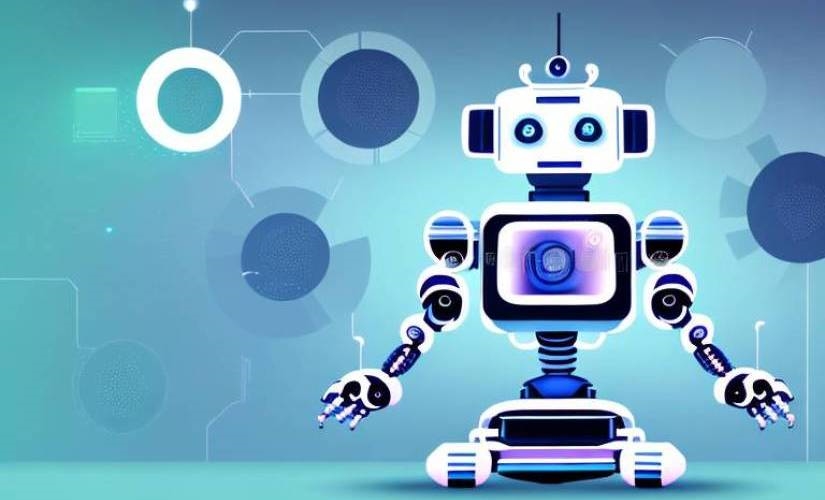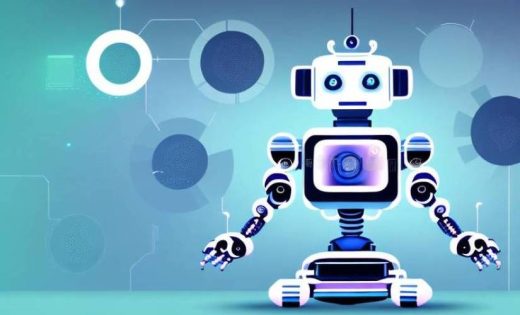Why is Artificial Intelligence Important? Exploring More Deeply
Why is Artificial Intelligence Important? Exploring More Deeply

In recent years, artificial intelligence (AI) has become an increasingly integral part of our daily lives, transforming how we live, work, and interact. From chatbots and virtual personal assistants to self-driving cars and smart homes, AI has ushered in a new era of innovation and convenience. But what exactly is AI, and why is it so important? In this article, we’ll delve into the benefits and challenges of AI to help you understand why this technology is such a game-changer.
Understanding Artificial Intelligence
Artificial Intelligence (AI) is a rapidly growing field that has the potential to revolutionize the way we live and work. In this article, we’ll take a closer look at what AI is, its history, and its applications.
Defining Artificial Intelligence
At its core, AI refers to the development of machines that can perform tasks that typically require human-like intelligence, such as learning, problem-solving, and decision-making. These machines are programmed to process data, identify patterns, and make predictions based on that data, allowing them to perform complex tasks autonomously.
AI is a broad field that encompasses a wide range of technologies and applications. Some of the key areas of focus within AI include machine learning, natural language processing, and computer vision.
Machine learning algorithms are used to train machines to recognize patterns in data and make predictions based on that data. These algorithms are used in a wide range of applications, from recommendation engines to fraud detection systems.
Natural language processing (NLP) is another key area of AI. NLP is used to enable machines to understand and interact with human language. This technology is used in virtual assistants like Apple’s Siri and Amazon’s Alexa, as well as chatbots and other conversational interfaces.
Computer vision is another important area of AI. This technology enables machines to “see” and interpret visual information. Computer vision is used in many applications, from self-driving cars to facial recognition systems.
A Brief History of AI Development
The development of AI can be traced back to the mid-20th century when researchers first began exploring the potential of machines that could think like humans. In 1956, a group of researchers organized the Dartmouth Conference, which is widely considered to be the birthplace of AI.
Over the years, AI has evolved from simple rule-based systems to more complex forms like deep learning and neural networks, allowing machines to become increasingly sophisticated and capable of performing a wider range of tasks.
One of the key milestones in the development of AI was the creation of the first expert system in the 1970s. Expert systems were designed to mimic the decision-making processes of human experts in specific domains.
In the 1980s and 1990s, AI research focused on developing machine learning algorithms and neural networks. These technologies enabled machines to learn from data and make predictions based on that data.
Today, AI research is focused on developing even more sophisticated algorithms and technologies, including deep learning, reinforcement learning, and generative adversarial networks.
AI Technologies and Applications
Today, AI is used in various applications, from virtual assistants like Apple’s Siri and Amazon’s Alexa to self-driving cars and intelligent robots used in manufacturing and healthcare.
One of the key applications of AI is in healthcare. AI is being used to develop new drugs, diagnose diseases, and even perform surgery. Machine learning algorithms are used to analyze medical images and identify patterns that can help doctors make more accurate diagnoses.
In manufacturing, AI is being used to improve efficiency and productivity. Intelligent robots are being used to perform tasks that are too dangerous or difficult for humans, while machine learning algorithms are being used to optimize supply chains and reduce waste.
AI is also being used in finance, where machine learning algorithms are being used to analyze financial data and make predictions about market trends. In the retail industry, AI is being used to power recommendation engines and personalize the shopping experience for customers.
Overall, the potential applications of AI are vast and varied. As the technology continues to evolve, we can expect to see even more exciting developments in the years to come.
The Benefits of Artificial Intelligence
Artificial Intelligence (AI) is a rapidly growing field that has the potential to revolutionize the way we live and work. From improving efficiency and productivity to enhancing decision-making and personalization, AI has numerous benefits that can make our lives easier and more fulfilling.
Improved Efficiency and Productivity
One of the key benefits of AI is its ability to automate repetitive or time-consuming tasks, freeing up human workers to focus on more complex and creative work. This can lead to increased productivity and efficiency, as well as cost savings for businesses. For example, AI-powered chatbots can handle customer inquiries and support, freeing up human customer service representatives to focus on more complex issues.
Additionally, AI can help businesses optimize their operations by analyzing data and identifying areas for improvement. For example, AI-powered supply chain management systems can analyze data from suppliers, warehouses, and transportation providers to optimize inventory levels and reduce delivery times.
Enhanced Decision-Making
AI can also help humans make better decisions by processing and analyzing vast amounts of data quickly and accurately. This can be especially useful in fields like healthcare, where AI can be used to diagnose diseases and develop treatment plans based on patient data. AI-powered decision support systems can also help businesses make strategic decisions by analyzing market trends and customer behavior.
Furthermore, AI can help individuals make better decisions in their personal lives. For example, AI-powered financial planning tools can analyze a person’s income, expenses, and financial goals to provide personalized investment advice and retirement planning.
Personalization and Customization
AI can also be used to personalize experiences for individual users, whether it’s through recommendation engines or customized product offerings. This can lead to increased customer satisfaction and loyalty. For example, e-commerce websites can use AI-powered recommendation engines to suggest products that a customer is likely to be interested in based on their past purchases and browsing behavior.
Furthermore, AI can be used to create customized products and services. For example, 3D printing technology combined with AI can create customized prosthetics for individuals with unique needs and specifications.
AI in Healthcare and Medicine
AI has already had a significant impact on the healthcare industry, from improving diagnoses to optimizing treatment plans. Machine learning algorithms can analyze medical images and data to detect diseases and recommend treatments, while virtual assistants can provide patients with personalized medical advice. Additionally, AI can be used to develop new drugs and treatments by analyzing vast amounts of data and identifying potential drug candidates.
AI can also improve healthcare operations by optimizing scheduling and resource allocation. For example, AI-powered systems can analyze patient data and predict which patients are at risk for readmission, allowing healthcare providers to prioritize follow-up care for those patients.
AI in Transportation and Logistics
Self-driving cars and drones are just two examples of how AI is transforming the transportation and logistics industries. These technologies can improve safety, speed up deliveries, and reduce costs. For example, self-driving trucks can operate 24/7, reducing delivery times and increasing efficiency. Additionally, AI-powered logistics systems can optimize delivery routes and reduce transportation costs.
Furthermore, AI can be used to improve traffic management by analyzing data from sensors and cameras to predict traffic patterns and optimize traffic flow.
AI in Education and Learning
AI can also be used to improve education and learning experiences, whether it’s through personalized tutoring or intelligent assessment tools. Teachers and instructors can use AI-powered tools to create more engaging and interactive learning experiences for their students. For example, AI-powered chatbots can answer students’ questions and provide personalized feedback on assignments.
Additionally, AI can be used to identify areas where students are struggling and provide targeted interventions to help them succeed. For example, AI-powered assessment tools can analyze student performance data to identify areas where students need additional support.
In conclusion, AI has numerous benefits that can improve our lives and transform the way we work. From improving efficiency and productivity to enhancing decision-making and personalization, AI has the potential to revolutionize many industries and improve the lives of individuals around the world.
The Challenges of Artificial Intelligence
Ethical Concerns and Bias
One of the biggest challenges of AI is ensuring that it’s used ethically and without bias. AI algorithms can reflect the biases and prejudices of their creators, potentially leading to discrimination or unfairness. It’s essential that we address these issues and establish ethical guidelines for the development and use of AI.
Job Displacement and Workforce Impact
As AI becomes increasingly capable of automating jobs, there is concern that it will lead to significant job displacement and impact the workforce. It’s important that we find ways to mitigate these impacts and ensure that workers are prepared to adapt to the changing job market.
Data Privacy and Security
The use of AI also raises concerns about data privacy and security. As AI systems process large amounts of personal data, there is potential for that data to be misused or stolen. It’s essential that we establish strong security measures and regulations for AI systems to protect user data.
AI Misuse and Malicious Applications
Finally, there is concern that AI could be misused or used for malicious purposes. As AI becomes more sophisticated, it could be used to develop new forms of cyberattacks or even autonomous weapons. It’s essential that we remain vigilant and establish strong regulations to prevent the misuse of this powerful technology.
The Need for Regulation and Governance
As we’ve seen, AI has enormous potential to transform our world for the better. However, as with any technological innovation, it also poses risks and challenges that must be addressed. To ensure that AI is developed and used in a safe, ethical, and effective manner, it’s essential that we establish strong regulations and governance structures. By doing so, we can unlock the full potential of AI while minimizing its risks and challenges.
In conclusion, AI is a powerful and important technology that has the potential to revolutionize the way we live and work. By understanding its benefits and challenges, we can ensure that we use AI in a responsible, ethical, and effective way that benefits all of us.
Featured Image Credit: Pexels; Thank you!
The post Why is Artificial Intelligence Important? Exploring More Deeply appeared first on ReadWrite.
(12)


